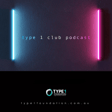
Episode 19: A Mother’s Story: Henry’s Type 1 & Coeliac Journey
In this deeply personal and raw episode of the Type 1 Club Podcast, Jacqui Kidman sits down with her now close friend Sally Jeffree, who bravely shares the story of her son Henry’s type 1 diabetes diagnosis—and everything that came with it.
It all began with an unexplained fainting episode at a birthday party. What followed was a whirlwind: a type 1 diabetes diagnosis while Sally was caring for a newborn, and then, within 12 months, a coeliac disease diagnosis too.
Sally opens up about:
- The moment everything changed
- Navigating hospital stays and newborn care at the same time
- The crushing weight of grief, guilt, and helplessness
- The unexpected strength that comes from friendship, community, and being seen
This is an honest conversation between two mothers who understand the impact of a chronic diagnosis—not just on a child, but on a whole family. Sally’s story is raw, real, and ultimately full of connection.
🎧 Listen now and share with someone who needs to hear they’re not alone.
#Type1Diabetes #DiagnosisStory #T1D #CeliacDisease #Motherhood #ChronicIllness #Type1ClubPodcast #RealTalk #ParentingWithPurpose
Further Resources:
Type 1 Foundation Website
Follow us on Instagram
Join the Facebook Group
